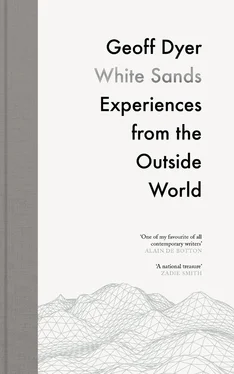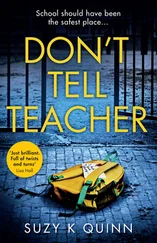‘Ten bucks says my heart’s in perfect shape,’ I said. But he wasn’t a betting man, the technician. Which was just as well — for him — because my heart and arteries were, as I’d boasted, pumping away like there was no tomorrow. Like there was going to be no end of tomorrows — tomorrows and tomorrows — any time soon.
‘Least now we know what it’s not,’ he said when the test was completed. We knew where we weren’t at.
In the early evening I had an intravenous CAT scan and Jessica returned with my laptop. We went through a personalised, amateur series of finger-waggling tests, and it seemed my vision had continued to improve. After she left I was able to type up the notes for my column, knock them into shape and file my copy, in case, for whatever reason, I was unable to do so the next day. A good decision, it turned out, though not because of any sudden deterioration in my condition. It was such a busy night that, in the morning, I was too exhausted to think. Whenever I was about to sleep someone would come in to check my blood pressure, my pulse, my temperature, to take more blood or monitor whatever else was happening in the gates and alleys of the body. I was glad of the attention, was even pleased to see the physical therapist — it’s important to get stroke victims moving again as quickly as possible — even if his skills were, in my case, entirely superfluous. All of this was really just build-up to the headline attraction: the neurologist who came by shortly before midday. He was Korean, bespectacled, a little younger than me and — I’m not sure how this came up — he had a daughter at Stanford. To be in his presence, to be the beneficiary of his training and expertise, was to marvel at how thoroughly the idea of rude health had been left behind. He was a reassuring advert for the efficacy of polite well-being.
All the test results so far were negative, he said. Apart from the small matter of the stroke, I was in great shape. This was as expected: I played tennis and Ping-Pong all the time, cycled everywhere, was as thin as a rake. I loved soy milk. My favourite meat was tofu.
‘I even take the skin off chicken!’ I told him.
We then went through the familiar round of tests, at which, without wishing to boast, I had come to excel: hand squeezing, face stroking, finger counting and so on. I was fine, my vision was almost entirely back, I could go home as soon as the paperwork was taken care of. The discrepancy between the seriousness of what had happened — everyone at the hospital was at pains to emphasise that any stroke is extremely serious — and the speed of my already almost complete recovery was echoed by the contrast between the extravagance and expense of the diagnostic technology and the modesty of the cure: low-dosage aspirin. Then, as the neurologist was about to leave, in anticipation of a few test results that were not yet in, he added a pre-emptive prescription for cholesterol-reducing Lipitor.
By two o’clock I was back home. I had a terrible headache but it was a very familiar form of terrible, nothing untoward, the kind I’d had hundreds of times before, a kind of hangover from the momentous events of the previous thirty hours. I slept for a couple of hours, cycled to the beach and walked by the ocean in the late surge and swell of afternoon light.
It seemed inconceivable that I could have had a stroke. I was fifty-five, way too young, and of all of my contemporaries I would have put myself last in line for such a thing happening. I’d never had a cigarette. I drank a fair bit, less than many of my friends, and was drinking less with every year. I actively disliked all the foods that you’re meant to avoid. Except doughnuts and croissants. I’d always eaten a lot of pastries, and in New York my doughnut habit had got. . not out of control exactly, but I was doing one a day for four months. Twice a week I had a couple of eggs, lightly poached, but what did that count for in the face of the overwhelming healthiness of my diet and life?
‘Well, something,’ the neurologist called to tell me the following day, ‘has sent your cholesterol through the roof.’ Instead of twenty milligrams of Lipitor, I should double the dose to bring it down as quickly as possible. After speaking with him, I remembered that, fifteen years ago, in England, my GP had said that my cholesterol was a little high. I paid it no mind, moved to a different part of London, signed on with another doctor. As far as I could recall, my cholesterol had never been tested again. Until now. Now I’d joined the great American statin-dependent democracy of high cholesterol, was being welcomed into the community of stroke victims as featured in a clutch of nicely produced brochures.
They made depressing reading, these brochures. In a friendly way they showed people of both sexes and many races going about their fulfilling post-stroke lives. These people, regardless of their race or sex, were overwhelmingly old and white-haired, and the advice — a walk is good exercise, pruning trees in the garden can be aerobically helpful — applied to a demographic to which I did not belong. Even as I rejected the proffered kinship, however, I remembered something that had happened nine months previously. I’d been sitting in a café when my left thumb and forefinger went completely numb. It had been freezing outside, but, looking back, this numbness had nothing to do with the temperature: it was absolute. Not just numb or cold, more like dead. This only lasted a couple of minutes and I soon forgot about it. On a couple of other occasions my vision had gone sort of sparkly and bleached out, but these episodes were so fleeting that I forgot about them too. Such things, I read now, might have been transient ischemic attacks: so brief they were difficult even to register until something more extreme occurred to give them definition and meaning. Until then they had nothing in common with anything you might ever think of as stroke-related.
Back in London, I often used to bump into the writer Gilbert Adair on Portobello Road, both before his stroke (always smoking, never healthy-looking) and after, when he was, as he put it, ‘sadly diminished.’ I last saw him, shuffling around with a friend, struggling to remember who I was, a couple of months before he died in December 2011, aged sixty-six. Gilbert was stroke-brochure material, had led a perfect stroke-conducive life. I may have been unlucky to have had a stroke at all, but it was a stroke of luck that I’d had such a mild one. Within forty-eight hours there was almost no physical difference between how I’d felt before and how I was afterwards. I was able to play Ping-Pong on Friday and Saturday (a very good workout for the eyes, one that persuaded me there was still some slight vision loss between 10:00 p.m. and midnight in the clock-dial scheme of things). On Monday I was playing tennis again. Apart from being at increased risk of another stroke I was fine — but psychologically I was conscious that the ground could open Adair-ishly beneath my feet at any moment. Every time I got out of the bath I worried that the giddy rush of blood from — or is it to? — the head might be the bow-wave of an approaching stroke. I was scared of bending down — and I was worried, constantly, about my brain.
There had certainly been some cognitive impairment — but Jessica insisted that this had occurred before the stroke. I used to pride myself on my sense of direction, but that had long gone south, or maybe north or east. I had trouble concentrating, but that too had been going on for ages — I put it down to the Internet, not to my brain blowing a fuse or springing a leak. So, no, nothing had gone permanently wrong in my head, or at least nothing had gone wrong that had not been in the process of going wrong for a while — but I now regarded that head and the brain snuggled warmly inside it in a new and vulnerable way. I’d been looking forward to signing up for a Medical Marijuana card in L.A., but the prospect of smoking pot (smoking in the healthy Californian sense of vaporizing) now seemed quite dreadful. While marijuana might meliorate the symptoms of some conditions, it seemed guaranteed to send the stroke victim spinning into an epic bummer in which you fixated either on the stroke you’d just had or the one that could blow your brain apart at any moment, that might be brought on by worrying about it. That was the thing about all this: it was a brain thing, and I loved my brain and the way it had been going about its business so gamely for more than half a century. Let’s say you have something wrong with your liver or heart. Terrible news. But if you’re lucky, if you get another one and take the right medication, you’ll be back to your old self again. But with the brain, the one you were born with either works or it goes wrong and you start sliding away from yourself. Even if a better, cleverer brain — a brainier brain — had been available for transplant, I wouldn’t have traded in the addled one I had for anyone else’s. And although the problem, we’d quickly discovered, wasn’t in my eyes, that’s where it had manifested itself — and I loved my eyes too, especially here in southern California, where half of the reason for living, possibly all of it, was to see and be seen. I loved seeing the ocean and the sunlight and the gorgeous, tanned, fat-free, screen-tested bodies as they muscled and jogged along the beach, adorned with zero-cholesterol tattoos of Maori designs and lines from Infinite Jest . But also there, down by the beach, were the homeless and the half-mad, men and women whose brains had been torn apart by drugs or had gradually come undone because of some undiagnosed fault in the wiring.
Читать дальше












